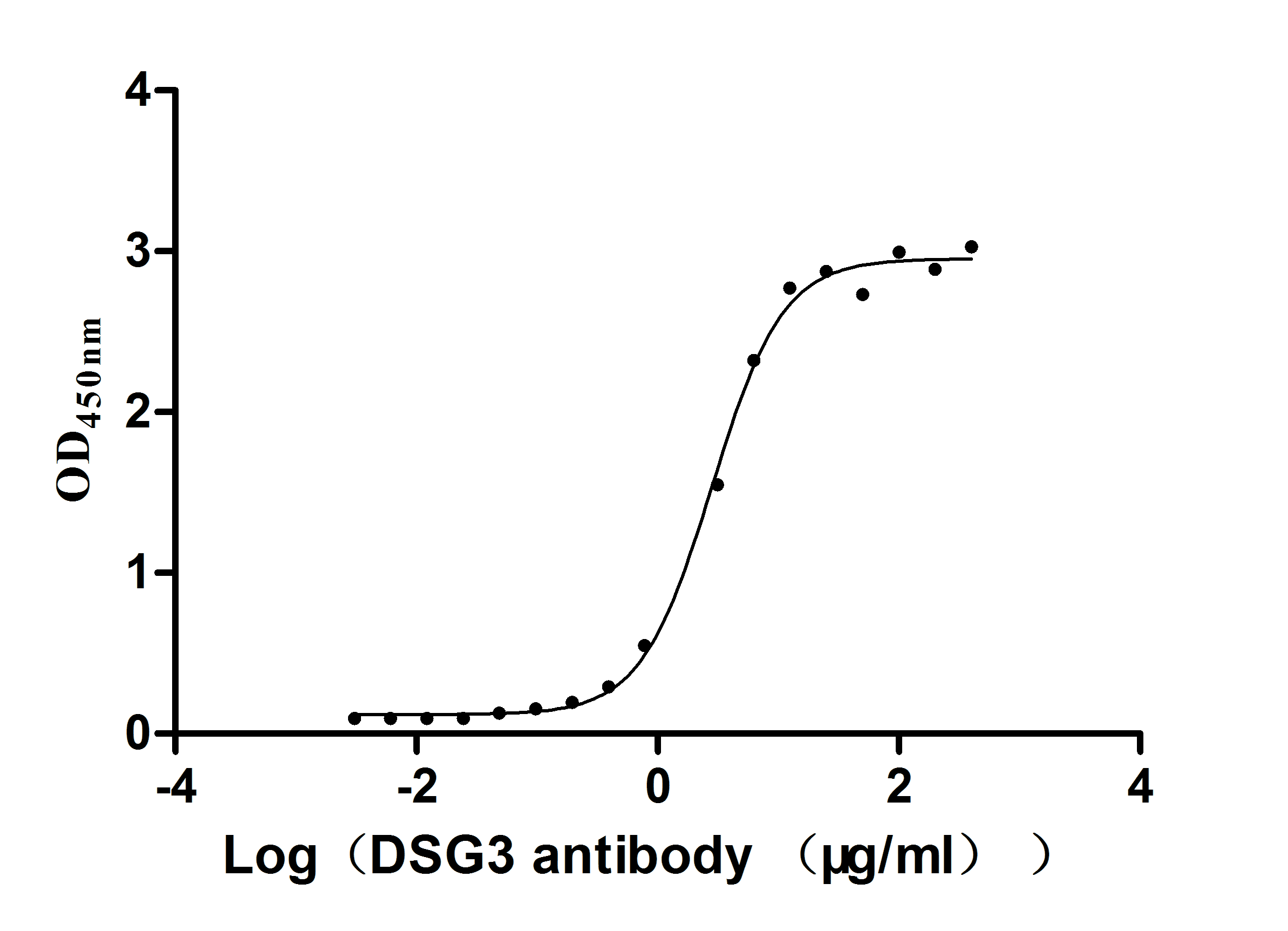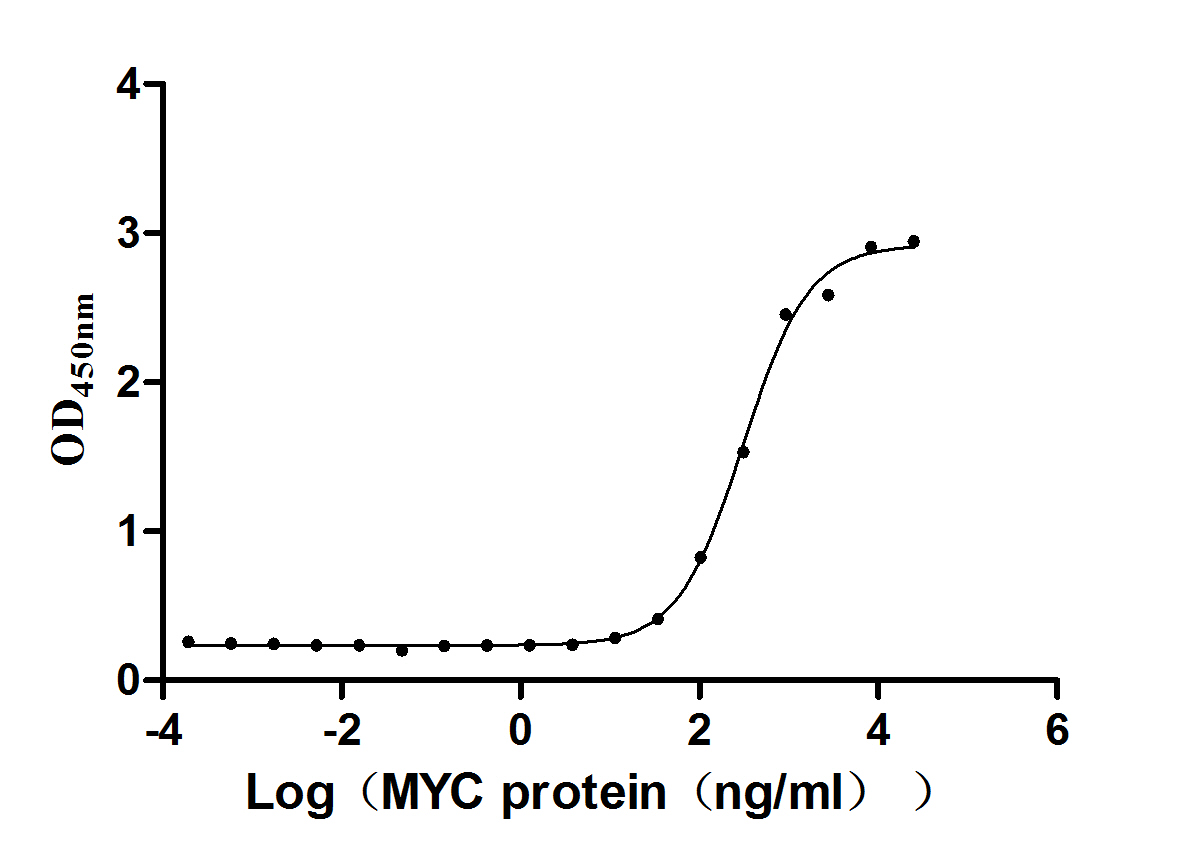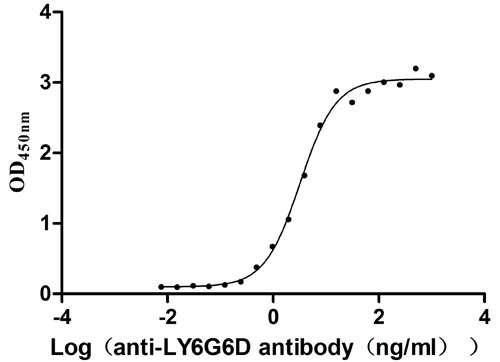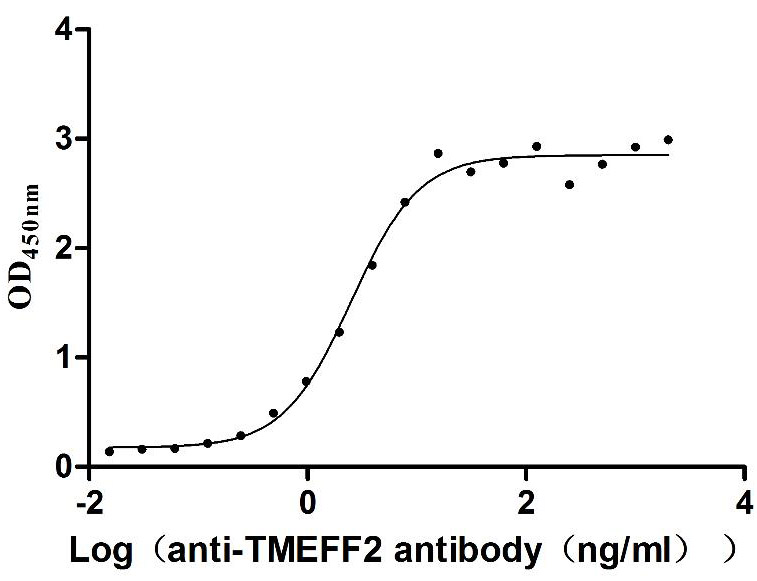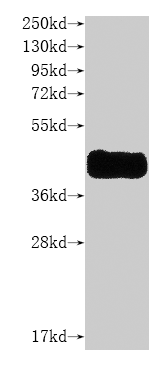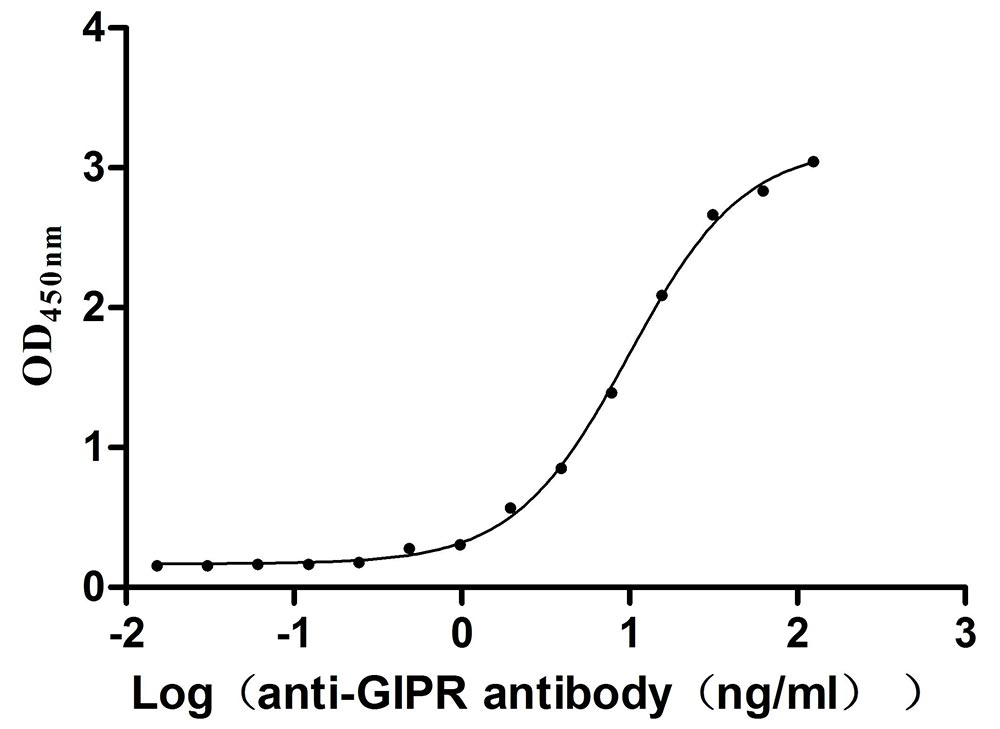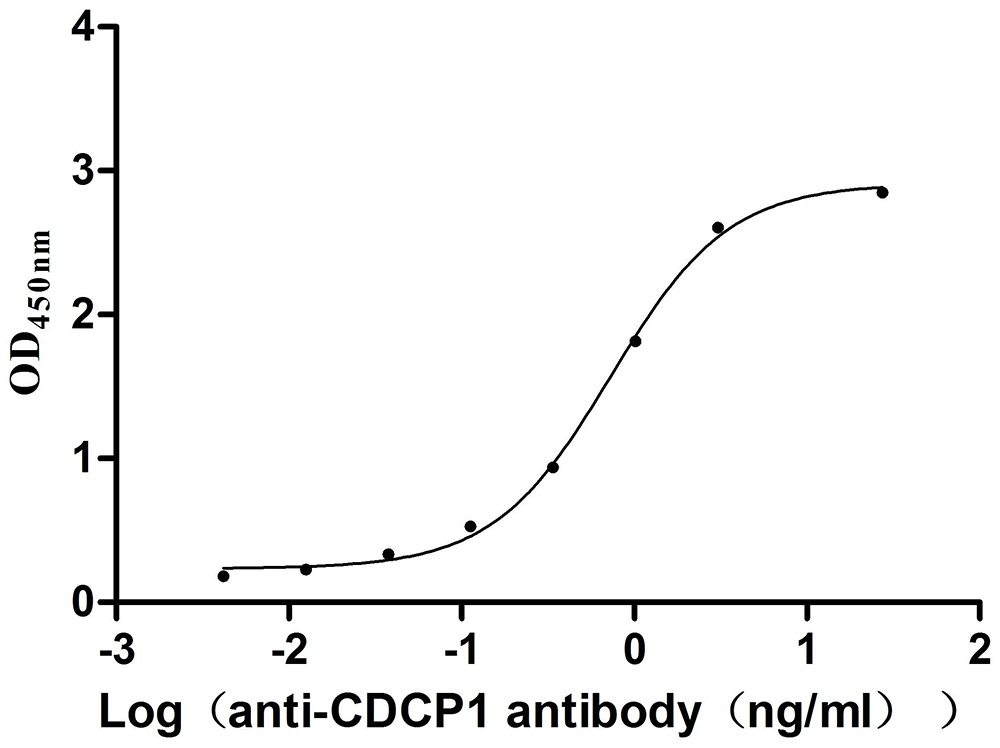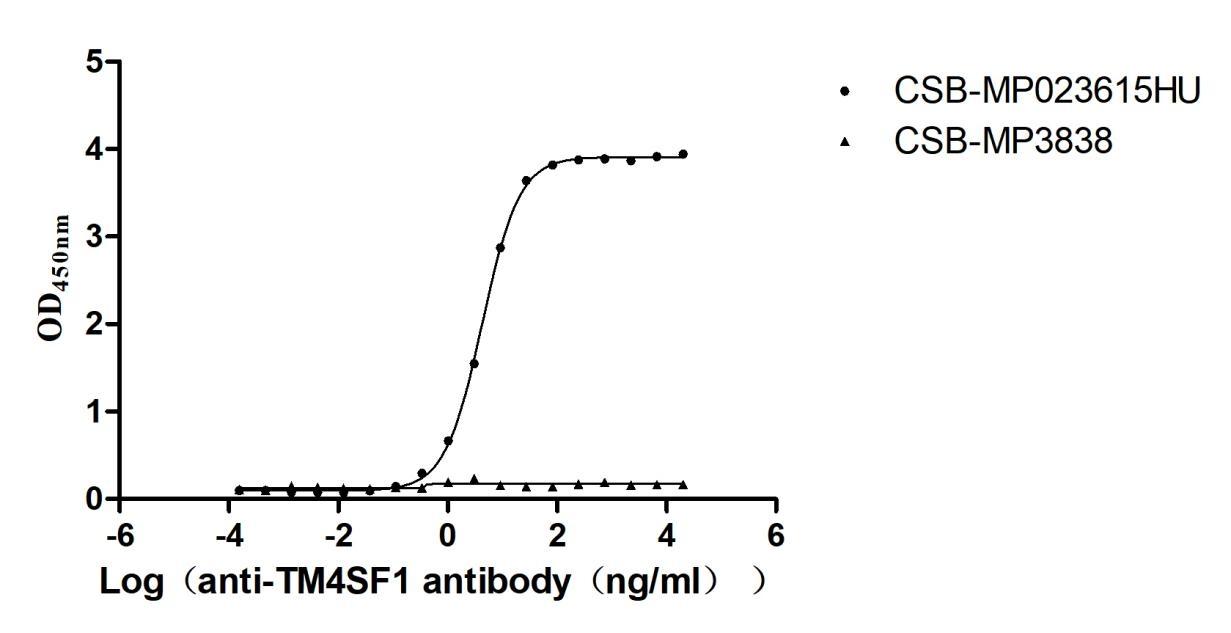Recombinant Human Beta-ureidopropionase (UPB1)
-
中文名稱:人UPB1重組蛋白
-
貨號:CSB-EP890662HU-B
-
說明書:
-
規格:
-
來源:E.coli
-
共軛:Avi-tag Biotinylated
E. coli biotin ligase (BirA) is highly specific in covalently attaching biotin to the 15 amino acid AviTag peptide. This recombinant protein was biotinylated in vivo by AviTag-BirA technology, which method is BriA catalyzes amide linkage between the biotin and the specific lysine of the AviTag.
-
其他:
產品詳情
-
純度:>85% (SDS-PAGE)
-
基因名:UPB1
-
Uniprot No.:
-
別名:UPB1; BUP1; Beta-ureidopropionase; EC 3.5.1.6; BUP-1; Beta-alanine synthase; N-carbamoyl-beta-alanine amidohydrolase
-
種屬:Homo sapiens (Human)
-
蛋白長度:full length protein
-
表達區域:1-384
-
氨基酸序列MAGAEWKSLE ECLEKHLPLP DLQEVKRVLY GKELRKLDLP REAFEAASRE DFELQGYAFE AAEEQLRRPR IVHVGLVQNR IPLPANAPVA EQVSALHRRI KAIVEVAAMC GVNIICFQEA WTMPFAFCTR EKLPWTEFAE SAEDGPTTRF CQKLAKNHDM VVVSPILERD SEHGDVLWNT AVVISNSGAV LGKTRKNHIP RVGDFNESTY YMEGNLGHPV FQTQFGRIAV NICYGRHHPL NWLMYSINGA EIIFNPSATI GALSESLWPI EARNAAIANH CFTCAINRVG TEHFPNEFTS GDGKKAHQDF GYFYGSSYVA APDSSRTPGL SRSRDGLLVA KLDLNLCQQV NDVWNFKMTG RYEMYARELA EAVKSNYSPT IVKE
-
蛋白標簽:Tag?type?will?be?determined?during?the?manufacturing?process.
The tag type will be determined during production process. If you have specified tag type, please tell us and we will develop the specified tag preferentially. -
產品提供形式:Lyophilized powder
Note: We will preferentially ship the format that we have in stock, however, if you have any special requirement for the format, please remark your requirement when placing the order, we will prepare according to your demand. -
復溶:We recommend that this vial be briefly centrifuged prior to opening to bring the contents to the bottom. Please reconstitute protein in deionized sterile water to a concentration of 0.1-1.0 mg/mL.We recommend to add 5-50% of glycerol (final concentration) and aliquot for long-term storage at -20℃/-80℃. Our default final concentration of glycerol is 50%. Customers could use it as reference.
-
儲存條件:Store at -20°C/-80°C upon receipt, aliquoting is necessary for mutiple use. Avoid repeated freeze-thaw cycles.
-
保質期:The shelf life is related to many factors, storage state, buffer ingredients, storage temperature and the stability of the protein itself.
Generally, the shelf life of liquid form is 6 months at -20°C/-80°C. The shelf life of lyophilized form is 12 months at -20°C/-80°C. -
貨期:Delivery time may differ from different purchasing way or location, please kindly consult your local distributors for specific delivery time.Note: All of our proteins are default shipped with normal blue ice packs, if you request to ship with dry ice, please communicate with us in advance and extra fees will be charged.
-
注意事項:Repeated freezing and thawing is not recommended. Store working aliquots at 4°C for up to one week.
-
Datasheet :Please contact us to get it.
靶點詳情
-
功能:Catalyzes a late step in pyrimidine degradation. Converts N-carbamoyl-beta-alanine (3-ureidopropanoate) into beta-alanine, ammonia and carbon dioxide. Likewise, converts N-carbamoyl-beta-aminoisobutyrate (3-ureidoisobutyrate) into beta-aminoisobutyrate, ammonia and carbon dioxide.
-
基因功能參考文獻:
- The c.977G>A (p.R326Q) is the most common mutation of the UPB1 gene in Chinese. The predicted incidence indicates that beta-ureidopropionase deficiency is significantly underdiagnosed in the Chinese population. PMID: 25236466
- High prevalence of p.R326Q in the normal Japanese population indicates that betaUP deficiency is not as rare as generally considered PMID: 24526388
- This study reports the clinical, biochemical, and molecular analysis of a newly identified patient with beta-ureidopropionase deficiency and the effect of the first synonymous mutation in UBP1 affecting pre-mRNA splicing, using the minigene approach. PMID: 24328561
- analysis of UPB1 variants on 5-FU-related toxicity in the population of all analyzed patients revealed an association between the c.-80C>G (rs2070474) variant and gastrointestinal toxicity PMID: 23238479
- biochemical and molecular findings of 11 newly identified ss-ureidopropionase deficient patients as well as the analysis of the mutations in a three-dimensional framework were reported. PMID: 22525402
- An altered homeostasis of beta-aminoisobutyric acid and/or increased oxidative stress might contribute to some of the clinical abnormalities encountered in patients with a beta-ureidopropionase deficiency. PMID: 15385443
- analysis of the beta-ureidopropionase gene (UPB1) of the first 4 patients presenting with a complete enzyme deficiency, revealed the presence of 2 splice-site mutations (IVS1-2A>G and IVS8-1G>A) and one missense mutation (A85E) PMID: 17065070
顯示更多
收起更多
-
相關疾病:Beta-ureidopropionase deficiency (UPB1D)
-
亞細胞定位:Cytoplasm.
-
蛋白家族:Carbon-nitrogen hydrolase superfamily, BUP family
-
組織特異性:Detected in liver (at protein level).
-
數據庫鏈接:
Most popular with customers
-
Recombinant Mouse Desmoglein-3 (Dsg3), partial (Active)
Express system: Mammalian cell
Species: Mus musculus (Mouse)
-
Recombinant Human papillomavirus type 16 Protein E7 (E7) (Active)
Express system: E.coli
Species: Human papillomavirus type 16
-
Recombinant Human Lymphocyte antigen 6 complex locus protein G6d (LY6G6D) (Active)
Express system: Yeast
Species: Homo sapiens (Human)
-
Recombinant Human Tomoregulin-2 (TMEFF2), partial (Active)
Express system: Mammalian cell
Species: Homo sapiens (Human)
-
Recombinant Human C-C chemokine receptor type 8 (CCR8)-VLPs (Active)
Express system: Mammalian cell
Species: Homo sapiens (Human)
-
Recombinant Mouse Gastric inhibitory polypeptide receptor (Gipr), partial (Active)
Express system: Mammalian cell
Species: Mus musculus (Mouse)
-
Recombinant Mouse CUB domain-containing protein 1 (Cdcp1), partial (Active)
Express system: Mammalian cell
Species: Mus musculus (Mouse)
-
Recombinant Human Transmembrane 4 L6 family member 1(TM4SF1)-VLPs (Active)
Express system: Mammalian cell
Species: Homo sapiens (Human)


